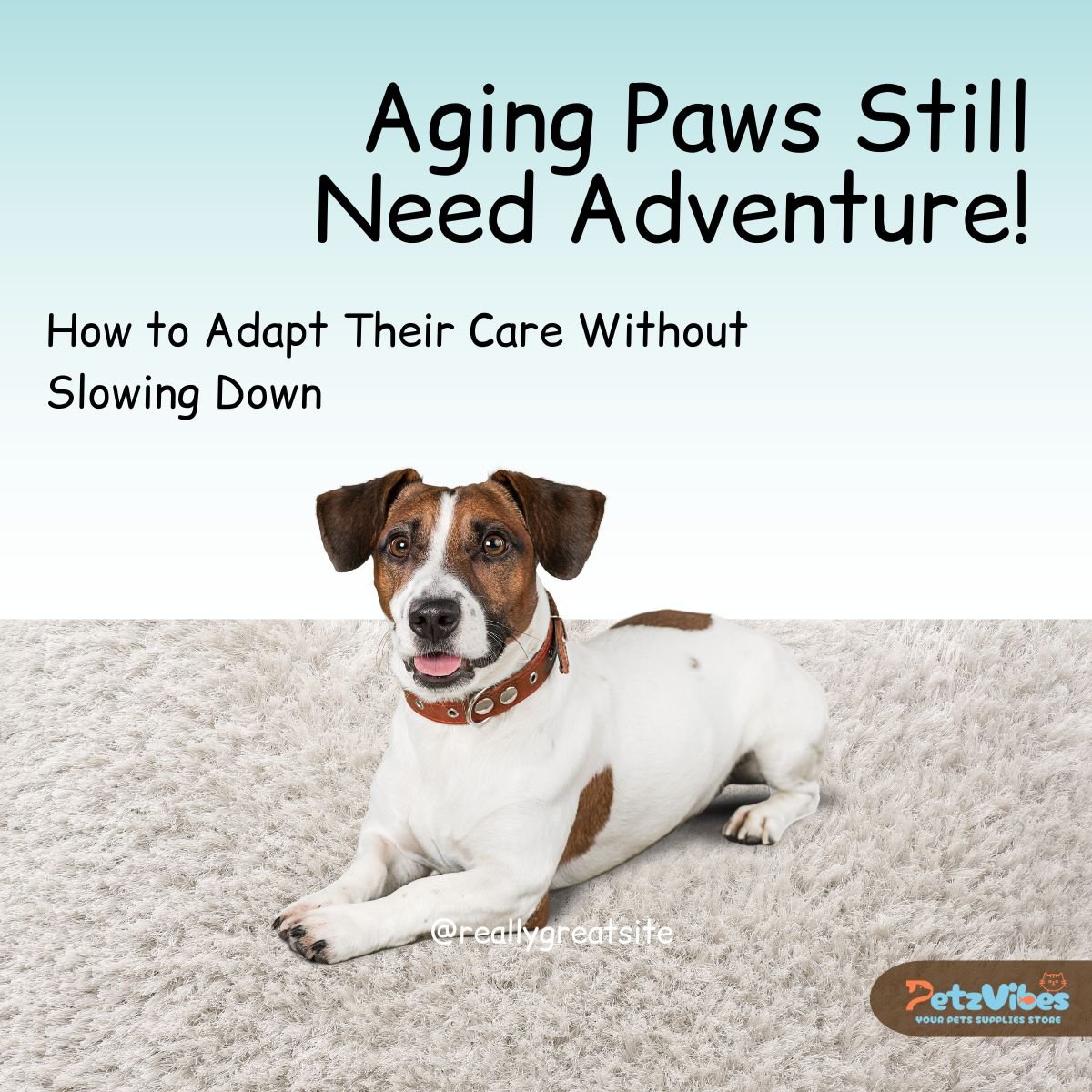Senior dog care is more than just extra cuddles—it’s a science-backed commitment to extending your pet’s quality of life. Did you know that dogs aged 7+ are considered ‘seniors,’ and over 33% of all pets in the U.S. fall into this category? As our loyal companions age, their bodies undergo significant changes: slowed metabolism, joint stiffness, and even cognitive decline (similar to human dementia). Yet, with proactive care, studies show that senior dogs can live 20-30% longer while maintaining vitality.
This guide dives into 10 essential tips to help your aging pup thrive—from cutting-edge nutrition advice (like omega-3s for brain health) to low-impact exercise routines that reduce arthritis pain. Whether your dog is a spirited 8-year-old Labrador or a wise 14-year-old Chihuahua, these strategies will empower you to:
✅ Spot early warning signs (e.g., changes in appetite or sleep patterns).
✅ Adapt their environment (think orthopedic beds and non-slip rugs).
✅ Partner with your vet for preventative care that saves money (and heartache) long-term.
Let’s honor your dog’s lifelong loyalty with the gold-standard care they deserve.
Understanding Your Senior Dog
As your dog ages, it might not be as sprightly or energetic as it once was. Senior dogs often face unique challenges, and understanding these can help you provide the tailored care they need.
Identifying Senior Dogs
Different breeds age at different rates. Smaller dogs may only begin to show signs of aging around 10, while larger breeds can be considered seniors by age 5 or 6. Observe behavioral changes, such as slower movement or more frequent napping, to identify if your pup has reached their senior years.
Changes in Behavior
Senior dogs might become less active or playful. These changes are normal and part of the aging process. Frequent or prolonged rest is common, as is a decline in enthusiasm for activities they once loved.
Diet and Nutrition
Proper nutrition is vital in maintaining the health and vitality of aging pets. A well-balanced diet can manage weight, boost the immune system, and improve overall energy.
Tailoring Their Diet
As dogs age, their metabolism slows down, increasing the risk for obesity, which can strain their joints and organs. Consider shifting to a senior dog food formulation, which often contains fewer calories and more fiber. Also, consult your veterinarian to determine the correct portion sizes and nutritional needs.
Supplements that Help
Nutritional supplements can be a great addition to your senior dog’s diet. Omega-3 fatty acids, for example, help with joint health and coat condition. Supplements like glucosamine and chondroitin are often recommended to support joint function.

Regular Vet Checkups
Consistent veterinary care is critical in detecting and addressing health issues early. Regular checkups become more important as your dog ages.
Scheduling Frequent Visits
An annual health check might suffice for younger dogs, but older dogs may benefit from twice or even thrice-yearly visits. These more frequent visits allow for more monitoring of potential health issues that are common in older age, such as dental problems or arthritis.
When to Seek Immediate Attention
Despite routine checkups, sometimes immediate veterinary care is necessary. If your dog suddenly exhibits signs of pain, significant weight loss, or drastic behavioral changes, consulting a vet promptly is vital to address potential emergencies.
Exercise and Physical Activity
Keeping your senior dog active is essential for their physical and mental well-being, though the intensity and frequency of exercise may require adjustment.
Adjusting Exercise Routines
Tailoring exercise routines to suit your aging dog’s abilities can prevent injury and over-exertion. Shorter, more frequent walks are often best for senior dogs. This helps maintain their cardiovascular health and keeps their joints moving comfortably.
Mental Stimulation
Mental health is as important as physical health. Engage your dog with puzzle toys or scent games to stimulate their minds, which keeps them sharp and entertained.
Grooming and Hygiene
Regular grooming helps prevent skin and coat issues commonly experienced by senior dogs. It also serves as an opportunity for owners to check for unusual lumps, bumps, or changes in their pet’s skin.
Tailoring Grooming Sessions
Older dogs may have less tolerance for long grooming sessions, so keep them short and gentle. Brushing helps circulate blood and distribute natural oils, promoting a healthy coat. Additionally, ensure regular dental care to support their dental health.
Watching for Sensitivities
Senior dogs might develop skin sensitivities or conditions that necessitate special shampoo or grooming practices. If you notice any irritations, consult your vet for the best course of action and recommended products.
Comfort and Living Environment
As dogs age, they often appreciate and benefit from a more comfortable living environment.
Creating a Safe Space
Consider their movement and comfort, especially if they experience arthritis or other joint issues. Providing padded surfaces or ramps to help them access loved spots can enhance their comfort.
Temperature Regulation
Older dogs might have difficulty regulating their body temperature. Ensure they are comfortable, with warm bedding in the winter and cool, shaded areas in the summer.
Addressing Health Concerns
Certain health issues become more prevalent with age, demanding closer observation and immediate attention.
Common Senior Dog Ailments
Keep an eye out for symptoms of arthritis, vision or hearing impairments, and cognitive dysfunction. These conditions are common in senior dogs and can affect their quality of life.
Treating and Managing Conditions
Working closely with your veterinarian, you can manage and treat many health concerns. Medication, special diets, or lifestyle changes may be recommended to alleviate their symptoms.
Emotional Support
Just as humans experience emotional shifts as they age, so do dogs. They might require more reassurance and companionship.
Maintaining a Bond
Spend quality time with your senior dog. Whether through gentle play, petting, or simply being together, nurturing the bond can support their emotional well-being.
The Role of Routine
Senior dogs often find comfort in routine, making their day-to-day life predictable and reducing stress. Try to maintain regular feeding, walking, and sleeping schedules to assure them of their place in your life.
Specialized Care Needs
Every senior dog is unique and may have personalized care requirements.
Understanding Specific Needs
Depending on their breed and health history, your senior dog might need particular types of care, from more frequent veterinarian visits to specific dietary adjustments.
Seeking Professional Advice
Consulting with a dog behaviorist or specialist for advice on caring for your senior dog can provide invaluable insights and strategies tailored specifically to your dog’s needs.
Planning for the Future
While it might be difficult to consider, planning for the years ahead ensures that you and your dog can fully enjoy your time together.
Advanced Health Plans
As part of your dog’s care, consider discussing advanced health plans with your veterinarian, including managing severe health issues or end-of-life care.
Ensuring Lasting Happiness
The goal is to ensure your senior dog lives a comfortable, happy, and fulfilling life. With proper care, your aging pup can remain a cherished part of your family for many years.
In conclusion, caring for a senior dog requires changes to how you’ve traditionally cared for your pet. With compassion, understanding, and attention to their evolving needs, you can help your aging pup live their golden years with grace and happiness. Whether adjusting their diet, maintaining regular vet visits, or spending more time together, every small act of love and care contributes to their well-being. Remember, the love and connection truly endure, making each day brighter for you and your senior canine companion.






